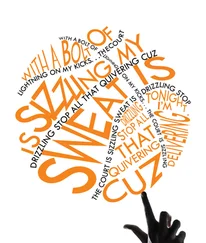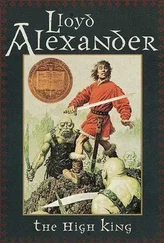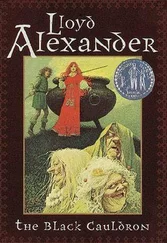I was stunned.
“You shouldn’t know everything,” Karl said. “It’s not wise. The less you are aware of what’s going on the better. We’re constantly on guard. We never know when some rogue officer is going to attempt to assassinate him. Valkyrie is our best hope of saving Germany. There are others who believe as I do.”
Tears stung my eyes at the mere possibility of Hitler’s death. I wanted to cling to Karl, but such a display of emotion would have been too hard to explain. I brushed the tears away. “I feel so tired and defeated. Our situation seems hopeless. Is there nothing I can do?”
He sighed. “Magda, you must get these thoughts out of your head. Don’t drive yourself mad over something you can’t accomplish.” He looked across the terrace. “I have a plan, but we can’t talk here. It’s too dangerous. Put on your boots. Let’s take a walk to the Teahouse.”
Karl and I agreed to meet at the front steps of the Berghof. I went back to my room and changed out of my shoes and into boots. Else was curled up under the covers, taking a nap after working the morning shift. I tiptoed around the room in order not to wake her. I closed the door quietly and walked down the wide hallway where Hitler often welcomed his guests to his mountain retreat. I opened the doors of the portico, which led to the broad stone steps, descending like the stairs of a Greek temple, to the driveway below. Mussolini, Chamberlain and countless other foreign dignitaries had climbed these steps to meet the Führer. The invited Party dignitaries, Speer, Göring, Goebbels, did the same when visiting. Hitler, his arm stiffly raised in a corresponding salute, towered like a god over them. From his vantage point at the top, he was the victor, the conqueror of those ascending from below.
Since I’d begun my work at the Berghof, I’d seen the newsreels and photos. The protocol was always the same. Hitler, dressed in his most regal military garb, often white, would stand at the top as the visitors arrived below. The guests always climbed the stairs to honor the leader of the Reich. They arrived at this place to offer a gift or, as many had done, deliver a sacrifice. A nation would do as well as any offering.
Karl smiled when he saw me standing at the top. The evening snowfall had been plowed into neat rows on each side of the drive. The thick white piles glittered with sparkling stars in the sunlight. I took Karl’s hand. We walked down the drive, patchy with ice, followed its U-shaped turn until we reached the trail that led to the Teahouse. We were the only ones out. I said little, but the sadness I felt earlier had eased and my spirits lifted underneath the evergreen canopy. If only we were not at war! If only a madman were not in charge! How different the world would be. Karl and I could be married, have children and start a life together. But my wishes might as well have been smoke, as transitory and fleeting as the wind that flowed around us.
When we came to the overlook, Karl stopped, swept the snow off the railing and stood silent. I started to speak, but he held up his hand.
“Listen,” he said.
I did, but heard nothing. He turned and brushed his lips across my cheek. My legs struggled to hold my weight; I felt light-headed as he caressed my face. “I don’t hear anything.”
“Nothing,” he said, and cocked his head. “Nothing but the wind brushing against the trees, the flutter of snow falling from branches. How quiet and how beautiful the world can be.” He stepped away and put his hands over his face. His shoulders buckled and he broke into sobs. When he took his hands away, his face was red with rage. He shuddered to stifle his anger. “Millions are dying because of one man! Think of it, Magda! Think how wonderful the world could be if there was peace. At this time of year we need to be reminded of peace. Hitler will stop at nothing to get his way, to fulfill his vision of what the world should be. He will kill and keep on killing until nothing is left but the Reich.”
I put my arms around him and drew him close. A tear fell upon my face. He pointed across the valley to the forest below and then to the mountain peaks spread across the horizon. “See how easy it would be for the British to position a sniper below, say in the forest—anywhere they could get a clear shot.”
I tried to imagine Hitler standing at the overlook, perhaps with Blondi by his side. One bullet through the head. One bullet through the heart. The thoughts made me shiver, crazed with rage.
“How easy that would be,” Karl said, “but how unfortunate for Germany. I hope the British realize the folly of their plan.”
“When you were going to—” I couldn’t finish the sentence. “How did you get the bomb into the Wolf’s Lair?”
He leaned against the railing. “It’s easier than you might think. The officers and soldiers have developed a trust with one another. It’s a strength and weakness for the Reich. Explosives can be slipped into a valise, or almost any object, for example, a cognac bottle. The guards rarely check a commanding officer unless they have some reason to be suspicious. When I knew my attempt was doomed by von Stauffenberg, I buried the bomb in swampy ground. Within hours the explosives would be useless.” Karl took hold of my shoulders. “Magda, you must do something for me. It’s very important…”
He hesitated as if he were searching for the right words.
“I’m asking you to do something that will assure your safety and possibly mine if it’s carried out successfully. However, it’s not without danger. But your life after Operation Valkyrie could depend on it.”
My pulse quickened. “Go on.”
Karl steadied me. “I want you to poison Hitler.”
I stared at him. How could he ask me to do such a thing when he’d wanted me to have no part of an assassination attempt?
“I’m not sure I heard you correctly,” I said.
“You must poison him, but then you must save him.”
The rage Karl had displayed a few minutes before had disappeared. Now only love showed in his eyes.
On the walk back to the Berghof, Karl convinced me that I should display my allegiance to Hitler, for if any part of Valkyrie went awry, suspicion would be deflected from me. Naturally, the Gestapo and the SS would consider me a collaborator because of our relationship. The best way to avoid that conclusion, he pointed out, would be for me to save Hitler’s life. He had come to this realization within the past few days. As we walked, we came up with a plan.
“Austerity” was the holiday word at the Berghof, as Cook had proclaimed. There were no parties, no Christmas tree and little joviality. The war on the Eastern Front was going badly, the Berlin bombings had taken their toll on the German people and the generals were concerned with the Allies’ plans in the West. Of course, I would have been as much in the dark about these matters as the rest of Germany if it hadn’t been for Karl. Only those directly affected, like the Berliners and the soldiers, knew the horrors of the war. The remainder of the Reich labored on, believing the lies spread by the Propaganda Minister.
But Eva Braun hosted a tea party every few days, as she had mentioned to Else and me on the terrace. The more Karl and I thought about it, the more we felt it would be a good idea if we both were invited to one of her teas, just as she had invited Karl to the showing of Gone with the Wind. That way, we could both be present for the poisoning.
The tea occurred a few days before Christmas. The snow fell heavily for hours and low clouds obscured the mountains as darkness descended upon the Berghof. Because of the weather, Eva scheduled her social event in the Great Hall after the Führer’s situational conference, rather than in the Teahouse. I had never been in the room, but I had heard stories about its huge window, several meters in width and height, that looked out upon the mountains. Karl and I arrived after four in the afternoon and Eva and several of her guests were already nestled in the large couches and chairs that surrounded the red marble fireplace. I was immediately taken by the room, which consisted of two separate elevations. The south side, where we entered, was higher than the rest of the Great Hall. With its tapestries, oil paintings and sculptures, its wide expanse reminded me of a museum built around a sitting room. The heavy wooden ceiling was carved into ornamental squares that supported a round chandelier. Furniture groupings were scattered about the room in comfortable seating arrangements. Everything the leader of the Reich needed to conduct his business was in the Great Hall: a massive conference table, an extraordinarily large globe on a wooden stand, cabinets, a grandfather clock, even a piano. But the showpiece of the room was the gigantic rectangular window. I got only a vague notion of its grandeur because of the bad weather. Karl told me it could be lowered into the basement on warm days to give an unobstructed view of the Untersberg. Certainly the window fit the psychology of the Führer. With this touch as well, he had constructed his retreat to fit his view of the world—master of all he surveyed.
Читать дальше












